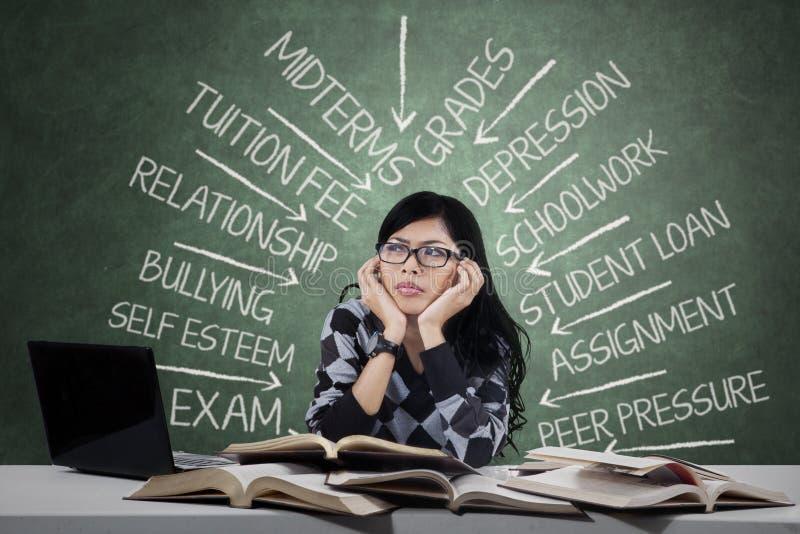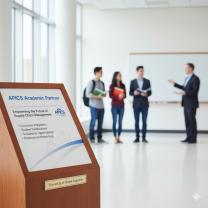What are the problems in high school?
High school can be a challenging time for many students, and they may face a variety of problems. Here are some common issues that high school students may encounter:
Academic Pressure:
- High academic expectations, challenging coursework, and the pressure to perform well in exams can lead to stress and anxiety.
Social Issues:
- Building and maintaining friendships, dealing with peer pressure, and navigating social dynamics can be challenging for high school students.
Bullying:
- Bullying can occur in various forms, including physical, verbal, or cyberbullying. It can have significant negative effects on a student's well-being.
Peer Pressure:
- Students may feel pressure to conform to certain behaviors or expectations set by their peers, which can sometimes lead to risky or unhealthy choices.
Family Issues:
- Family problems, such as divorce, financial difficulties, or conflicts at home, can impact a student's emotional well-being and academic performance.
Time Management:
- Balancing academic responsibilities, extracurricular activities, and personal life can be challenging. Many students struggle with effective time management.
Standardized Testing Stress:
- The emphasis on standardized testing, college admissions exams, and the pressure to secure good scores can be stressful for high school students.
Body Image and Self-Esteem:
- Adolescence is a time of significant physical changes, and students may grapple with body image issues and self-esteem concerns.
College and Future Planning:
- The pressure to plan for the future, including decisions about college and career paths, can be overwhelming for high school students.
Substance Abuse:
- Some students may face exposure to or engage in substance abuse, including drugs and alcohol, which can have serious consequences on their health and academic performance.
Mental Health Challenges:
- High school students may experience mental health issues such as anxiety, depression, or other disorders, which can impact their overall well-being.
Extracurricular Demands:
- While participation in extracurricular activities is encouraged, the demands of clubs, sports, or other commitments can contribute to stress and time constraints.
Technology Distractions:
- The ubiquity of technology and social media can lead to distractions, sleep disturbances, and potential negative impacts on mental health.
Diversity and Inclusion:
- High schools are diverse environments, and issues related to inclusion, discrimination, or prejudice may arise, affecting the overall school climate.
It's important to note that the challenges faced by high school students can vary widely, and individuals may experience a combination of these issues. Schools often provide resources, such as counseling services, to support students in overcoming these challenges. Open communication between students, parents, teachers, and school staff is crucial to addressing and resolving these issues effectively.
Prevalent Issues or Problems Experienced by High School Students
High school students face a variety of challenges that can impact their academic performance, emotional well-being, and overall development. Some of the most common issues include:
Academic Stress and Pressure: The pressure to succeed academically can be overwhelming for many high school students. They may struggle with difficult coursework, standardized tests, and the expectations of parents, teachers, and peers.
Social and Emotional Challenges: High school is a time of significant social and emotional development. Students may face issues such as bullying, peer pressure, social isolation, and navigating complex relationships.
Mental Health Concerns: Mental health issues such as anxiety, depression, and stress are prevalent among high school students. These concerns can affect their mood, motivation, and ability to cope with daily stressors.
Substance Abuse: Experimentation with alcohol, drugs, and other substances can become a problem for some high school students. This can lead to addiction, risky behavior, and impaired decision-making.
Identity and Self-Esteem: Adolescents grapple with developing their sense of identity, self-esteem, and body image. They may face challenges related to fitting in, feeling accepted, and developing a positive self-perception.
How Educational Systems Address Issues Faced by High Schoolers
Educational systems implement various strategies to address the challenges faced by high school students. These strategies can include:
Academic Support and Interventions: Providing additional academic support, such as tutoring, study skills workshops, and after-school programs, can help students overcome academic difficulties.
Social-Emotional Learning Programs: Integrating social-emotional learning programs into the curriculum can help students develop emotional regulation, conflict resolution, and communication skills.
Mental Health Counseling and Support: Providing access to mental health counseling and support services can help students address mental health concerns and develop coping mechanisms.
Substance Abuse Prevention and Education: Implementing substance abuse prevention programs and educating students about the risks of substance use can help reduce substance abuse among high schoolers.
Positive School Climate Initiatives: Fostering a positive and supportive school climate that promotes inclusion, respect, and belonging can contribute to students' overall well-being.
Psychological and Emotional Difficulties Encountered in High School
High school students are particularly susceptible to psychological and emotional difficulties due to the developmental changes they are experiencing. Some common psychological and emotional challenges include:
Anxiety: Anxiety disorders are prevalent among high school students, with symptoms ranging from excessive worry and fear to panic attacks.
Depression: Depression can manifest in various ways, including sadness, loss of interest in activities, changes in sleep and appetite, and difficulty concentrating.
Stress: High levels of stress can affect students' physical and emotional health, leading to headaches, fatigue, irritability, and difficulty concentrating.
Body Image Concerns: Adolescents are particularly sensitive to their body image, and negative body image perceptions can lead to low self-esteem, eating disorders, and social withdrawal.
Relationship Challenges: Navigating complex relationships with peers, romantic partners, and family members can be challenging for high school students, leading to emotional distress and conflict.
Addressing these psychological and emotional difficulties requires a comprehensive approach that includes support from parents, teachers, counselors, and mental health professionals.












